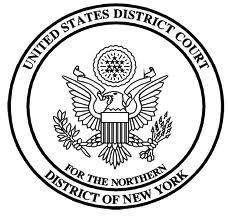 Co-authored by Robert S. Whitman and Adam J. Smiley
Co-authored by Robert S. Whitman and Adam J. Smiley
In February, this blog reported on two FLSA collective actions filed by former unpaid interns for The Hearst Corporation and Fox Searchlight Pictures. These interns claimed, respectively, that they should have been paid for work performed for about 20 magazines and on the production of the 2010 film “Black Swan.”
Hot on the heels of these cases is yet another class and collective wage and hour “internship” lawsuit, this time initiated by an “Intern/Assistant Football Coach” for Hamilton College’s Athletics Department. Filed on December 20, 2012 in the U.S. District Court for the Northern District of New York, the Plaintiff alleges that the school misclassified its athletics department interns (who are not students) as exempt under the Fair Labor Standards Act (FLSA) and the New York Labor Law (NYLL), failed to pay him minimum wage for all hours worked, and failed to pay him overtime for hours in excess of forty per week.
Unlike the Hearst and Fox Searchlight interns, Hamilton College paid the Plaintiff a monthly stipend of $1,000-$1,100. The Plaintiff argues, however, that his hourly rate during the football season — during which he often worked over 100 hours per week — fell below $3.00 per hour, far less than minimum wage. After the football season ended, the Plaintiff alleges that he performed similar duties for the women’s basketball team and assisted with football recruiting. While his weekly hours did not reach triple digits during the offseason, the Plaintiff claims that his rate of pay still fell below minimum wage and that the College continued to deprive him of overtime.
The Plaintiff is alleging that the College lacked funds for enough full-time assistant coaches and thus relied on low-paid interns to provide the necessary labor. As we saw in the prior cases, interns work for little or no pay when the possibility exists that the internship could lead to a full-time job. Here, the Plaintiff states that he hoped to eventually join the staff of the Hamilton College football team as a full-time assistant coach.
This lawsuit demonstrates an emerging trend in wage and hour litigation, and the use of interns across a broad spectrum of employers makes this a fertile area for litigation. Highlighting the financial risks is the recent settlement of a lawsuit brought by an unpaid intern on “The Charlie Rose Show,” which this blog first reported in March 2012. The December 18, 2012 settlement totaled $250,000, and called for each of the 190 class members to be paid a sum of $1,100, plus a $50,000 payment for attorneys’ fees. The parties’ arrived at their $1,100-per-intern figure by agreeing that each intern would receive $110 per week, for a maximum of 10 weeks, which was the average length of an internship semester. The $110 number was based on an average of 15 work hours per week, which translates to a $7.33 hourly rate, just over the current New York minimum wage of $7.25. This settlement is believed to be the first of its kind involving a wage and hour claim filed by an unpaid intern.
Employers utilizing unpaid interns should closely examine their programs in light of these developments to ensure that they are in full compliance with applicable legal standards dealing with interns. Employers who have decided to pay their interns to avoid any wage and hour liability should ensure that their rate of pay still comports with minimum wage and overtime requirements under the FLSA and applicable state laws.